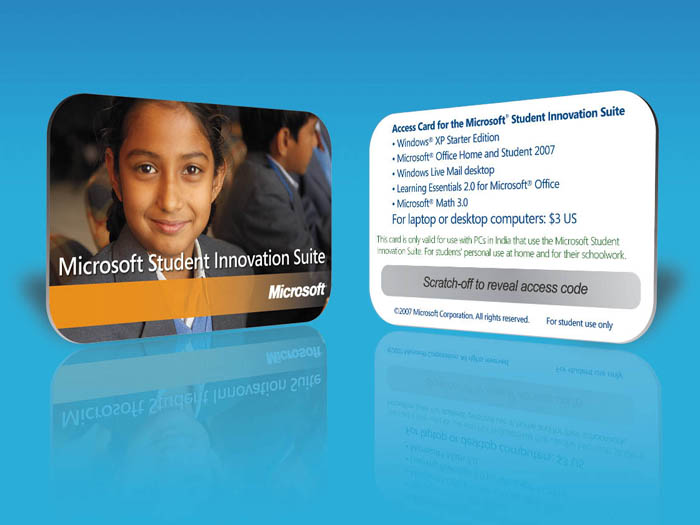Cheap Microsoft software for emerging nations
Gates to sell Windows package to developing world for $3

Reports from the Intel Developer Forum in Beijing say that Bill Gates is expected there to speak about expanded plans to help spread Microsoft technology to developing countries, including an opportunity to buy Windows XP and MS Office for just £1.50.
The Partners in Learning program focuses on making it easier for people in emerging nations to both buy software and learn how to use it through government-backed schemes and training. As part of that scheme, Gates will outline expanded availability for his Student Innovation Suite (SIS).
Cut-down Windows
The software package features Windows XP Starter Edition and Microsoft Office Home Edition at its core. These are complemented by a collection of other MS productivity applications and the entire bundle is already available to pre-approved government bodies for $3 or £1.50.
Licences to use SIS are distributed to qualifying schools, colleges and other learning centres accompanied by scratch-cards (see photo above) that are assigned to individual users and which can be used only once to activate each installed package. Full details of government-level requirements needed to qualify for the SIS bundle are available on the Microsoft Innovative Students website .
Microsoft's move comes as open-source software, such as the version of Linux used on the OLPC laptop, is becoming increasingly popular, due mainly to the lack of a licensing fee. By partnering directly with governments the cost to potential end users thus becomes a transparent element in software choice.
Sign up for breaking news, reviews, opinion, top tech deals, and more.
J Mark Lytle was an International Editor for TechRadar, based out of Tokyo, who now works as a Script Editor, Consultant at NHK, the Japan Broadcasting Corporation. Writer, multi-platform journalist, all-round editorial and PR consultant with many years' experience as a professional writer, their bylines include CNN, Snap Media and IDG.